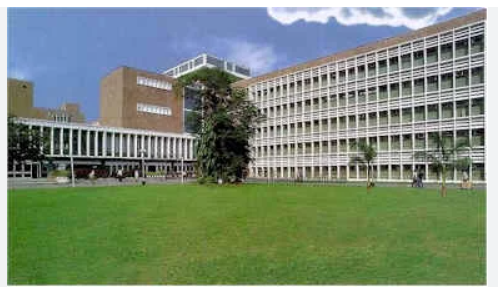All India Institute of Medical Sciences
The All India Institute of Medical Sciences (AIIMS) is a group of autonomous public medical universities and research institutes across India. AIIMS New Delhi, the primary institute, was established in 1956 as an institution of national importance by an Act of Parliament. Since then, the AIIMS system has expanded to include several more institutes across the country.
AIIMS institutions are known for providing high-quality medical education, conducting cutting-edge research, and delivering affordable healthcare services to the public. They are recognized as some of the best medical institutes in India and are highly sought-after by students and patients alike.
History
The concept of AIIMS was first proposed by the then Prime Minister of India, Jawaharlal Nehru, in 1946. The proposal was to create an institute that would serve as a nucleus for nurturing excellence in all aspects of health care. In 1956, the All India Institute of Medical Sciences Act was passed by the Parliament, and AIIMS New Delhi was established as an autonomous institution of national importance.
Institutes
As of 2023, there are 22 AIIMS institutes across India:
Each AIIMS institute is autonomous and functions independently, but they all share the common goal of providing high-quality medical education, research, and patient care.
Courses Offered
AIIMS institutes offer a wide range of undergraduate, postgraduate, and doctoral courses in various fields of medicine and allied sciences. Some of the most popular courses offered by AIIMS include:
- MBBS (Bachelor of Medicine and Bachelor of Surgery)
- MD (Doctor of Medicine) in various specialties such as Anesthesiology, Dermatology, Internal Medicine, Pathology, Pediatrics, Psychiatry, Radiology, etc.
- MS (Master of Surgery) in various specialties such as Otorhinolaryngology, General Surgery, Obstetrics and Gynecology, Ophthalmology, Orthopedics, etc.
- DM (Doctor of Medicine) in various super-specialties such as Cardiology, Endocrinology, Neurology, Oncology, etc.
- MCh (Master of Chirurgiae) in various super-specialties such as Cardiothoracic and Vascular Surgery, Neurosurgery, Pediatric Surgery, Plastic Surgery, Urology, etc.
- BSc (Bachelor of Science) in various allied health sciences such as Nursing, Optometry, Medical Technology, etc.
- MSc (Master of Science) in various fields such as Anatomy, Biochemistry, Microbiology, Pharmacology, Physiology, etc.
- PhD (Doctor of Philosophy) in various fields of medicine and allied sciences.
Admission to these courses is highly competitive and is based on entrance examinations conducted at the national level, such as NEET (National Eligibility cum Entrance Test) for undergraduate courses and various other entrance exams for postgraduate and doctoral courses.
Research and Innovation
AIIMS institutes are known for their cutting-edge research and innovation in various fields of medicine and allied sciences. They have well-equipped research laboratories and state-of-the-art facilities for conducting basic, translational, and clinical research.
Some of the major research areas at AIIMS include:
- Infectious diseases such as tuberculosis, HIV/AIDS, malaria, dengue, etc.
- Non-communicable diseases such as cancer, diabetes, cardiovascular diseases, neurological disorders, etc.
- Maternal and child health
- Mental health and neurosciences
- Environmental health and occupational health
- Healthcare policy and systems research
AIIMS institutes have made significant contributions to medical research in India and have published numerous research papers in national and international journals. They also collaborate with other research institutes and universities in India and abroad for conducting joint research projects.
Patient Care
AIIMS institutes are known for providing high-quality and affordable healthcare services to the public. They have well-equipped hospitals with state-of-the-art facilities for diagnosis, treatment, and care of patients.
Some of the major healthcare services provided by AIIMS include:
- Outpatient department (OPD) services for various specialties and super-specialties
- Inpatient department (IPD) services with state-of-the-art wards and intensive care units (ICUs)
- Emergency and trauma care services
- Diagnostic services such as radiology, pathology, and microbiology
- Surgical services for various specialties and super-specialties
- Rehabilitation services such as physiotherapy, occupational therapy, and speech therapy
- Telemedicine services for remote consultation and care
AIIMS institutes also provide free or highly subsidized healthcare services to economically weaker sections of society under various government schemes and programs.


